- Home
- Michael White
The Medici secret Page 6
The Medici secret Read online
Page 6
Edie led the way and they slowed as they approached the apartment. The street was busy with cars and people on the pavements window shopping. Edie's place, above a smart shop selling personalised wrapping paper and exclusive stationery, was accessed through a door set back under an archway. She lived in an ancient, three-storey building that was darkened with pollution from the busy street.
A light came on automatically in the hall as they entered, and Edie quickly closed the door behind them. A broad, stone staircase led to two apartments on each level. Edie's was on the second floor.
It was only when they reached the door that they realised something was wrong. It was open a crack.
'Wait here,' Jeff said and eased the door inwards. With exaggerated care he stepped forward, then paused to listen. All they could hear was the traffic from the street below. Edie looked scared and Jeff raised a finger to his lips before taking two careful steps into the hallway of the apartment. At the end of the passageway he paused again, stood against the far wall, then moved quickly into the main living area. Edie joined him and they both stared in disbelief at the devastation.
The floor was strewn with papers. Edie's computer lay in pieces, parts scattered across the carpet, the screen smashed. Disks, books, papers and files had been thrown around and bookcases overturned.
Without saying a word, Edie picked up the chair to her desk and sat down, burying her head in her hands. After a moment, she looked up, her eyes were watery, her face very pale. 'Who would do such a thing?' she demanded.
Jeff placed a gentle hand on her shoulder then turned towards the tiny kitchenette, which was almost untouched. In a moment, he had found a bottle of brandy. He poured two large measures into a couple of teacups and handed one to Edie. 'Here. I think you could do with this.'
Edie stared at it listlessly then downed it in one. 'Thanks.'
'I don't mean to sound insensitive,' Jeff said after a moment. 'But I don't think we should hang around here too long.' Edie said nothing.
'Whoever followed us obviously knows where you live. They'll quickly put two and two together.'
'And what do you expect me to do?' Edie snapped. Jeff looked away. 'I just think…'
'I'm not going anywhere, Jeff.' Edie's face was a mask of fury, all the pain and anger bursting to the surface. Crouching down, she picked up a silver-framed photograph of her dead parents. The glass was shattered. She gingerly pulled out the remaining shards, touched the image gently with the tip of one finger and brought it over, placing it on the kitchen counter.
'What the hell is all this about?' Her face was flushed and Jeff could tell she was barely in control. She collapsed into the chair and burst into tears.
He wasn't quite sure what to do, but then as quickly as the tears had come, they stopped, and she looked up at him, her eyes red, her cheeks damp. She wiped her face with the back of her hand and sniffed.
'Where am I supposed to go? Should I call the police?'
Jeff pulled a chair over and sat close to her, putting an arm around her shoulders. 'I don't think the police will be able to protect you… and you haven't told them about the mobile message. At best, they'll believe you've been deceitful. At worst, they could suspect you of being complicit in the murder of your uncle.'
'This sort of thing doesn't happen to people like us,' she said after a moment. 'We're usually left alone to get on with our quiet lives. Car chases and murder don't figure.' Jeff raised his eyebrows.
'So what do you suggest?' She looked around at the mess, feeling lost.
'If you want to know who killed your uncle, the tablet offers the first clue, and that is clearly telling us to go to Venice.'
Chapter 7
Florence, 4 May 1410 It was a cloudless, starry night, perfect for walking, perfect for contemplating one's place in the scheme of things. Cosimo arrived late at the home of his friend, the former condotierre Niccolo Niccoli. Built during the thirteenth century, the house was fine and old, situated close to the church of Santa Croce in the south-east of Florence, not far from where the city walls came down to meet the Arno. Stretching back behind the house in the direction of the centre of Florence was an expansive, luxuriant garden, and it was here Niccoli hosted most of the gatherings of Cosimo and his friends who had recently dubbed themselves, not too seriously, the Humanist League.
A servant met Cosimo at the door and escorted him silently through the house, traversing a cavernous marble-floored hall before passing through a series of interconnecting rooms and on into the garden. As Cosimo passed through a grand doorway, he could hear voices and laughter. His companions had assembled close to a fountain depicting Icarus soaring towards the sun. They were regulars at these gatherings of Florentine humanists, and good friends of Cosimo's. As he approached, Cosimo saw Ambrogio. He wanted to speak with him before the end of the night as his friend was leaving the very next day to work for the Doge in Venice. But then his attention was drawn to an elderly man he had never seen before who was addressing the small gathering. He was exceptionally tall, bird-thin and dressed in a rather old-fashioned black lucco. His grey beard was trimmed close, his cheekbones protruded and he had large, dark, animated eyes.
Cosimo took the few steps to the paved area, and as he reached his friends, the stranger concluded his story and a couple of the men laughed good-naturedly.
'Ah, here he is,' Niccoli said as Cosimo came into view. Dressed in the red toga he always wore on such occasions, Niccoli took a few steps away from the gathering and embraced the young Medici. With an arm around his shoulder, his host drew him towards the others.
'Cosimo. I would like to introduce you to Francesco Valiani, our guest of honour this evening, who only four days ago arrived in Florence from his travels in far-off lands.'
'It is a pleasure to meet you, sir,' Valiani declared. 'I've heard so very much about you… and all of it good.'
Cosimo gave a small laugh. 'Well that is a relief.' And he turned to Niccoli. 'So sorry I'm late, it has been a most perplexing day.'
Niccoli was about to ask why when he was distracted by a servant at his elbow. Turning to the gathering, he said. 'I'm reliably informed we are required at table. If you would, gentlemen,' and he signalled that they should follow him into the house.
The dining room was vast and the performance put on by Niccoli was characteristically over-the-top, even for Cosimo's circle of friends, who each tried to outdo one another as hosts for such gatherings. The room was lit solely by candles in a huge silver chandelier hanging low over the table. A small group of musicians played in a corner: a lutist, a beautiful young harpist and an older man on the flute.
After the guests were shown to their seats, a massive gilded pie on a silver dish was brought out. It took four slaves to carry it and to hoist it into the centre of the table. A middle-aged servant in a green uniform, his white hair cut close to his head, leaned forward, and with great ceremony, sliced through the pastry. As a crack opened in the pie, the pastry seemed to bubble up and a bright yellow bird pushed through the crust and flew bewildered into the room. A dozen more birds emerged from the pie, circled the room, and in a few moments they had found the doors opening on to the gardens.
The guests burst into spontaneous applause. The pie was filled with dates and pine nuts (along with a few bird droppings). Dissected by two slaves, it was quickly piled on to silver dishes.
As soon as this was finished, the silver was removed and fresh plates appeared. On these were placed a breast of capon in jelly. When that had been consumed, it was followed by twelve more courses, including pigeon, venison, swan and specially imported figs wrapped in fantastically thin gold foil.
The men ate noisily, talking with their mouths full, at times laughing uproariously,^ others arguing fiercely, before coming to agreements and slapping each other on the back then returning to the feast to consume another course. They quaffed excellent local wines, as well as vintages from France.
It was a feast to remember and Cosimo was finding a
special enjoyment in tonight's events because he knew it would be the last such gathering he would attend for some time. Perhaps, he thought, this could even be the very last night of such revelry with this particular group of friends. He would still see these men, still enjoy their company occasionally, but soon, such youthful and exuberant affairs would be substituted by banquets laid on for and by new friends and associates within the world of banking, his father's friends and those men whom Giovanni had arranged to associate with his son.
The guests dallied over a collection of sweetmeats and milk pudding accompanied by strong spirits and a sugary dessert wine from Normandy. Cosimo was about to move around the table to talk to Ambrogio when Niccoli stood up at the head of the table and asked the gathering to adjourn to another room where Francesco Valiani would address them.
The noblemen sat on soft couches and Valiani settled himself into a chair in front of them. Servants provided the men with more drinks, and a hush fell over the proceedings.
'I tarried in Turkey for two years,' the old man began. 'For much of that time I was a guest of Mehmet, the charismatic son of the former Sultan, Bayazid the first, who, as you may know, was called "The Thunderbolt". Bayazid was a most learned man as well as a fierce warrior, and his son, who throughout my stay was busy trying to prevent his country falling into civil war, followed in his footsteps. The Sultan's library is a place of priceless wonders which could have kept me there a lifetime, rather than a mere two years.
'The library is a wonder not simply because of the incredible collection of books it contains, but also for the references I was able to find there, references to still more arcane sources kept far beyond the sight of normal men. I was greatly honoured by the Sultan who had heard of my modest works, and I was granted permission to study at my leisure. In this library, I found original manuscripts of Greek playwrights, a tome handwritten by a disciple of Plato, as well as a host of volumes composed in strange languages I had never before seen. I was told by the librarian that some of these books had originated in the great empire of the Egyptians and date back many thousands of years. They are written in a lost hieroglyphic language no living man understands.'
Valiani looked around the room at the rapt faces. 'But, as I say, for all the magnificence of these things, more exciting still is the promise that greater treasures are to be found in remote parts of the land of the Turk. My biggest regret is that I could not take advantage of this information, for within days of making these discoveries in the library of the Sultan, my very life was threatened.
'Mehmet finally lost control of his country. He escaped Constantinople and lives to fight another day. He has many resources and most of his people are on his side. For me, things became dangerous because of the simple fact of my nationality and because I had enjoyed the special protection of the Sultan, who was now in fear of his own life. I quickly made preparations to leave the city. It was then that fate, I believe, took a hand.
Two of my travelling companions, Michelangelo Gabatini and Piero de' Marco were murdered on their way to the harbour where they had secured passage across the Aegean. One of their slaves survived the attack and escaped to warn me. The harbour was now too dangerous. I had no choice but to turn my eyes north and hope to escape to Adrianople, and from there cross the border into northern Greece.
'I will not bore you with the details of my journey, suffice it to say the four weeks it took me to reach Adrianople were perhaps the longest of my life. One of my slaves died from fever on the way, another fled our camp one evening and was found the next morning at the bottom of a ravine.
'Now, sitting here in the comfort of this beautiful palazzo, I can say it was all worth it, but it did not seem so at the time. Most importantly though, my greatest discovery was awaiting me in Adrianople. I was given shelter at a monastery just beyond the city walls. The kind monks fed and watered us. They even found a room for the slaves to share, and those brave souls who had escaped with me were treated by the holy men as equals. I confess I was very ill, and, as soon as I arrived I fell into a dark fever from which I believed I would never recover. The monks attended me and gradually I regained my strength. There were rumours that the civil unrest in the capital was spreading and that even life behind these hallowed walls would not always remain safe. The monks, though, showed no fear and had placed their fate in God's hands.
'When I was well, I explained to the monks something of my mission in this country and told them of the wonders I had found in the library of the Sultan in Constantinople. One particular monk, Brother Aliye, was fascinated with what I had to say and we formed a particularly strong bond. He was young and thirsty for knowledge. He had lived in the monastery since the age of ten, but he had been born in the nearby village. His parents had died and he had been cared for by the holy men before being initiated into the Order.
'One evening, just before I planned to leave to continue my escape into Greece, Aliye came to see me after Vespers. He seemed agitated. I asked him what troubled him. At first, he was not keen to speak, but then he opened up and recounted a most peculiar tale. He said that when he was a boy, late one night, a stranger had visited his parents at their home in the village. Aliye had pretended to be asleep, but through barely opened lids he had seen his parents talking to the stranger. The man had given them a small package and then left without another word. Brother Aliye had then seen his father hide the package under the floor of the hut in which they lived. The next day, both his parents were killed. No one could speak of how they had died and he had been too young to be told the details of their last walk home from working in the fields and how their mutilated bodies had been found in a ditch nearby.
'Aliye told me that just moments before the monks arrived to take him to the monastery he had recovered the package his parents had been given. Even as a young boy he had known there was some connection between the parcel and the death of his parents and that the package had to be of special significance. Soon after he had settled at the monastery, Aliye had opened the package left to him. Inside, he had found a map. On this evening, just hours before I was due to leave Adrianople, he showed the map to me.
'He had treasured this secret all his life, he told me. It was the only remaining link with his parents. He could not part with it, but he told me he would be happy for me to copy it in the time I had left in the company of the monks, and he hoped it would be of some use in my travels and schemes.'
Valiani stopped for a moment to catch his breath and to take a sip of wine. 'I was staggered by what I discovered. Aliye's map described a route to another monastery, high up on the mountain of Golem Korab in the north-west of Macedonia. The monastery is hidden from the world, a secret bolthole for monks who fled Muslim forces hundreds of years ago. To one side of the map there was a block of text which related how the monastery contained great literary and Hermetic wonders. It claimed the librarian of the monastery had kept safe irreplaceable volumes thought lost in the destruction of the library of Alexandria: originals of Greek scholarship and the texts of Egyptian and Hellenic magi, a world of science, magic and lost knowledge.'
Valiani stood up and a slave walked over to him. He was holding an ornate box and had opened it so his master could retrieve an item inside. The old man took a step towards his audience.
'And now I must deviate from convention.' In his hand he held a scroll tied with a black silk ribbon. He tugged at the bow and let the silk fall to the floor. With great ceremony, he opened the scroll. 'My friends, here is the copy I made. I knew when I left the monastery and the kindness of Aliye and his brethren that I could not make the journey to Macedonia myself. I am too old, and the flight from Constantinople has sapped my strength irredeemably. Indeed, I do not expect to live very long and I know I will never again travel beyond this land. I have no family, no heirs, no students. Instead, I have resolved to bring this to Italy and to bequeath it to those who deserve it and whose views I respect and admire. In my correspondence with Lord Niccoli before tonight a
nd from the many things I have heard about you all, I have grown convinced I should leave in your hands, this treasure, to do with what you will. I know you will act wisely and with honour.'
His audience was stunned into silence. Niccoli stood up and walked over to the old man. 'Are you sure of this, Master Valiani?'
'I am sure,' the scholar replied. 'But there is great need for secrecy. There are many who would wish to lay their hands on this treasure. So I have built in some safeguards to my offer.' He scrutinised each of the men. 'Safeguards?' Cosimo asked.
'This map is incomplete,' Valiani said. 'You will have noticed this.' And he indicated a circular blank patch about three inches in diameter in the middle of the map. 'A crucial fragment is missing from the centre, here. The missing piece is in Venice. If you wish to discover the secrets of Golem Korab you must first travel to the Most Serene Republic. Upon your arrival, send a brief message to one Luigi at a guest house called I Cinque Canali. Luigi is a most unusual man, but I would trust him with my life. He will lead you to the missing section of map.'
He pulled a ring from his finger. Walking over, he handed it to Cosimo. It was a silver band holding a large rectangular garnet. 'Give this to Luigi as proof of who you are. Once you have the missing section, you must protect the map with everything you have, and then leave Venice without delay. If you need help there are very few you may trust. Garnet is my family stone and a secret sign to my friends. The final thing you will need is this,' he added, and handed Cosimo a small gold key. 'The rest is up to you.' Valiani left soon after making his unexpected offer, but a few of Niccoli's guests stayed on to discuss it. Cosimo was fired up and could not stop thinking about Valiani until the small hours found him still talking it through with his closest friend, Ambrogio Tommasini, and their host, Niccolo Niccoli.

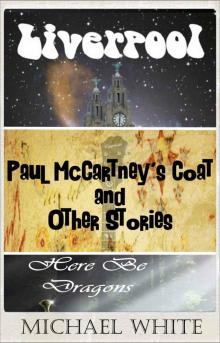 Paul McCartney's Coat
Paul McCartney's Coat The Cat Is Back!
The Cat Is Back!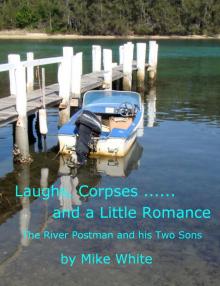 Laughs, Corpses... and a Little Romance
Laughs, Corpses... and a Little Romance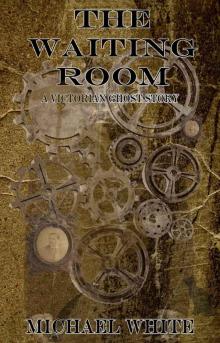 The Waiting Room
The Waiting Room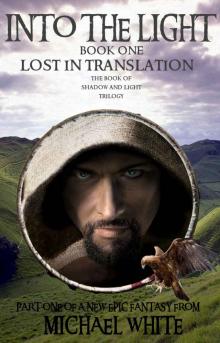 Into the Light- Lost in Translation
Into the Light- Lost in Translation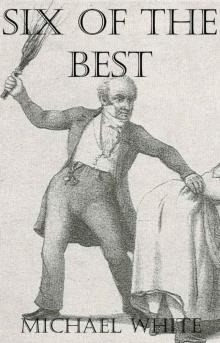 Six of the Best
Six of the Best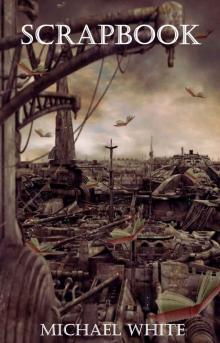 Scrapbook
Scrapbook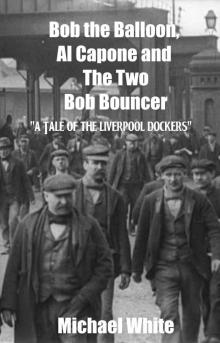 Bob the Balloon, Al Capone and the Two Bob Bouncer
Bob the Balloon, Al Capone and the Two Bob Bouncer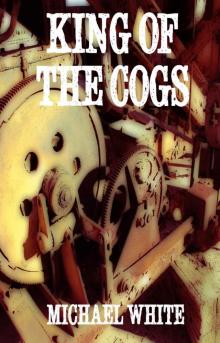 The King of the Cogs
The King of the Cogs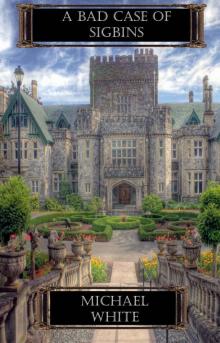 A Bad Case of Sigbins
A Bad Case of Sigbins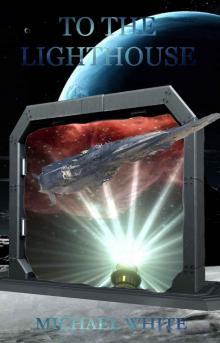 To the Lighthouse
To the Lighthouse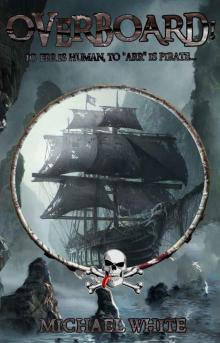 Overboard!
Overboard!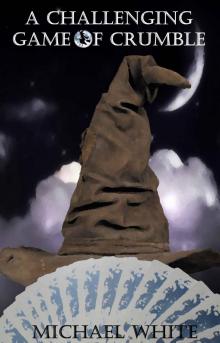 A Challenging Game of Crumble
A Challenging Game of Crumble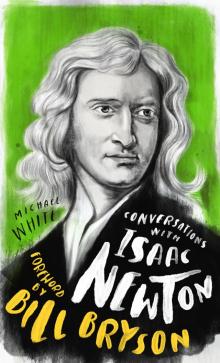 Conversations With Isaac Newton
Conversations With Isaac Newton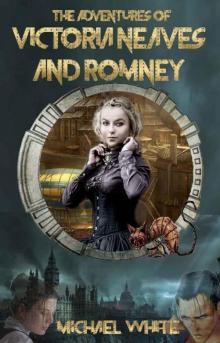 The Complete Adventures of Victoria Neaves & Romney
The Complete Adventures of Victoria Neaves & Romney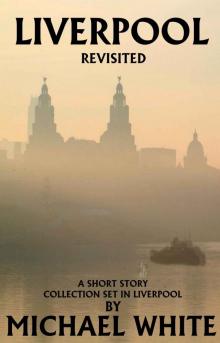 Liverpool Revisited
Liverpool Revisited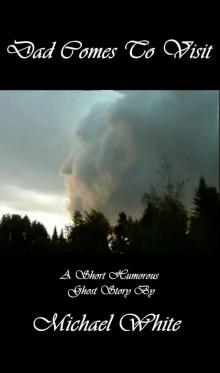 Dad Comes to Visit
Dad Comes to Visit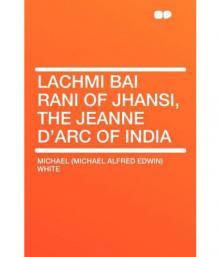 Lachmi Bai, Rani of Jhansi: The Jeanne D'Arc of India
Lachmi Bai, Rani of Jhansi: The Jeanne D'Arc of India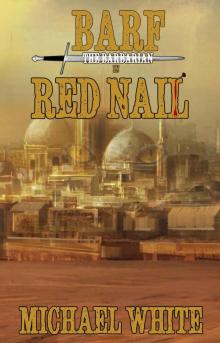 Barf the Barbarian in Red Nail (The Chronicles of Barf the Barbarian Book 2)
Barf the Barbarian in Red Nail (The Chronicles of Barf the Barbarian Book 2)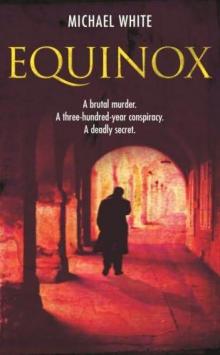 Equinox
Equinox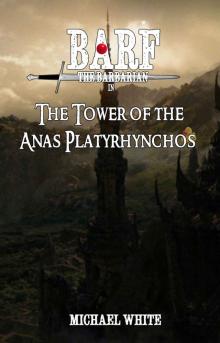 Barf the Barbarian in The Tower of the Anas Platyrhynchos (The Chronicles of Barf the Barbarian Book 1)
Barf the Barbarian in The Tower of the Anas Platyrhynchos (The Chronicles of Barf the Barbarian Book 1)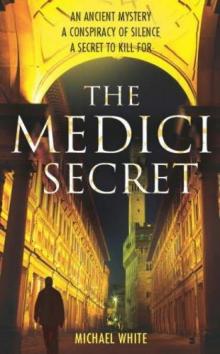 The Medici secret
The Medici secret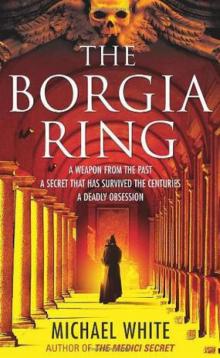 Jack Pendragon - 02 - Borgia Ring
Jack Pendragon - 02 - Borgia Ring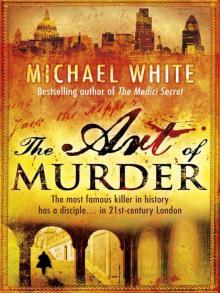 The Art of Murder jp-3
The Art of Murder jp-3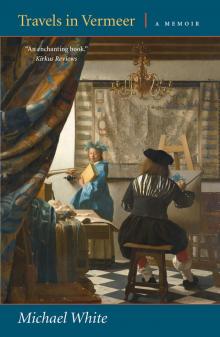 Travels in Vermeer
Travels in Vermeer